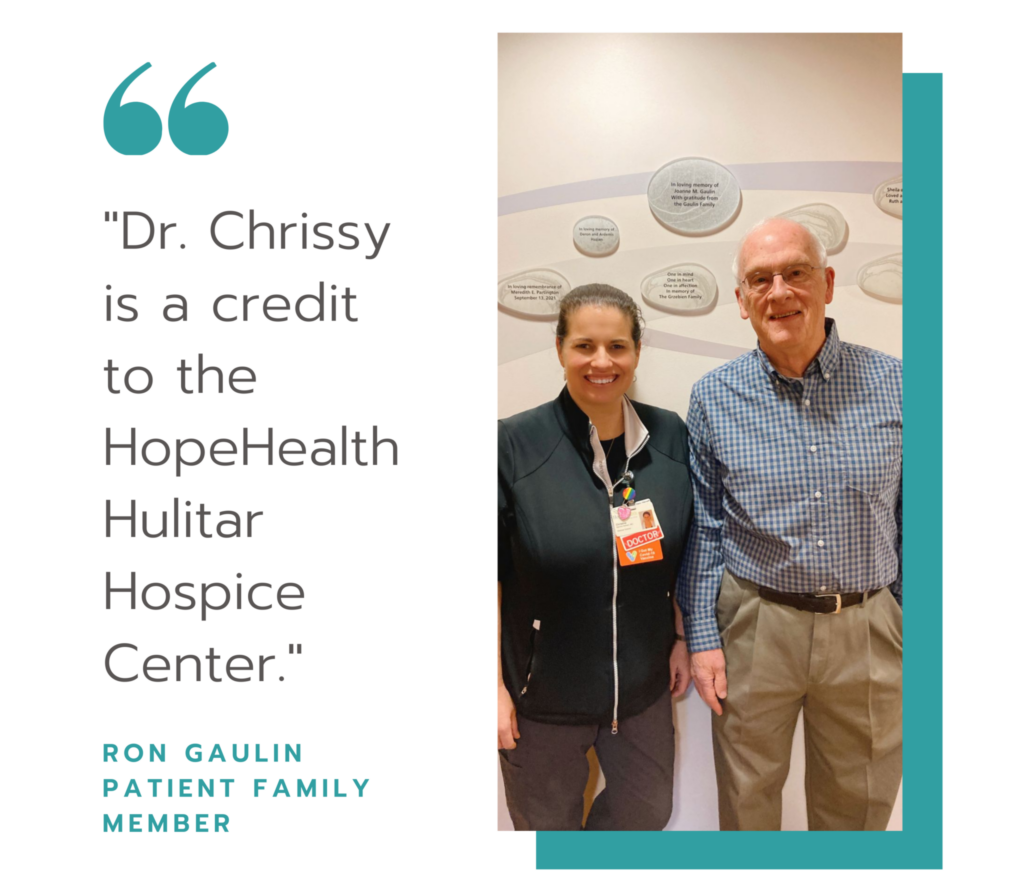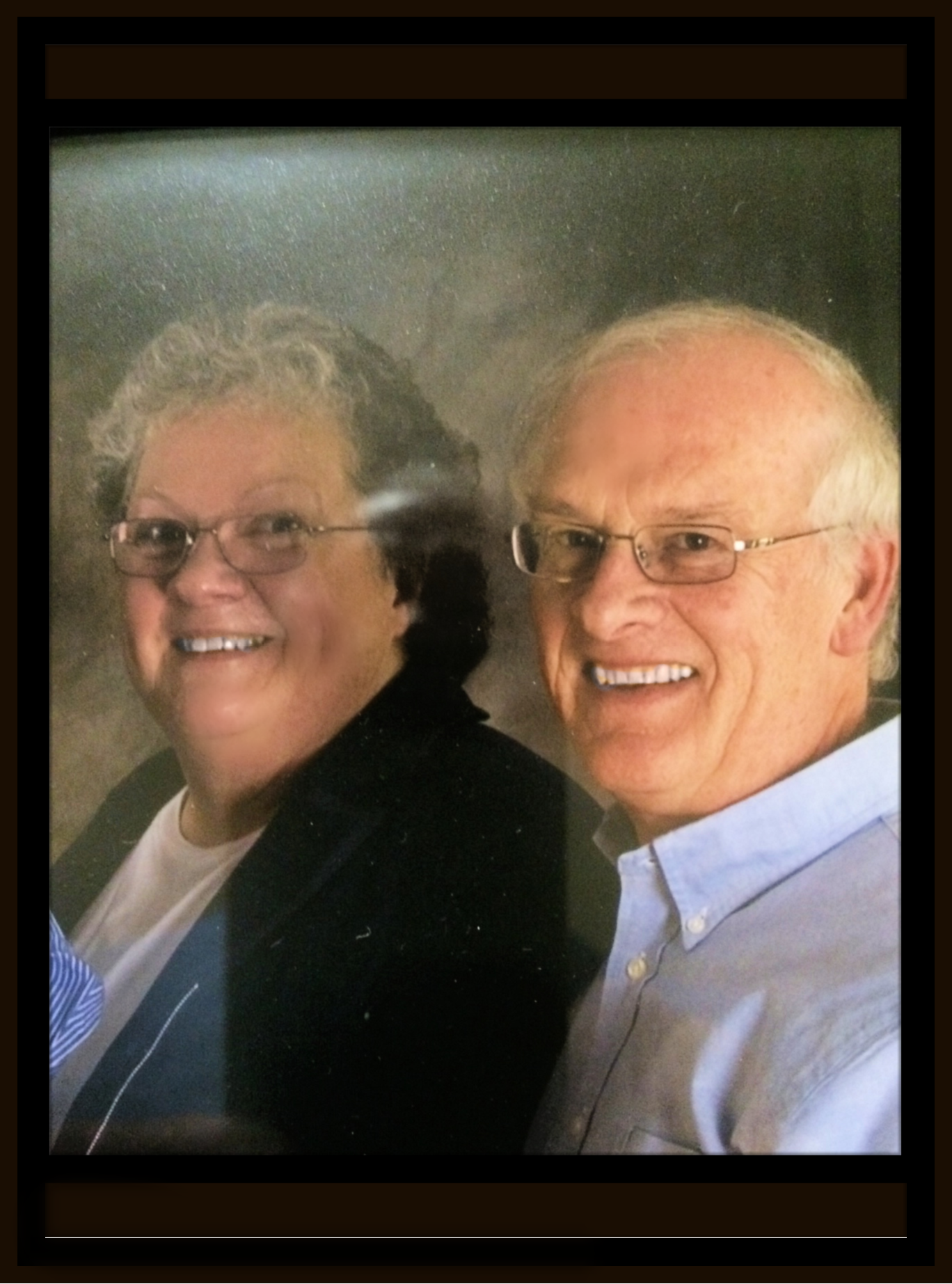Early in their relationship, Ron and Joanne wrote letters — 271 letters in 16 months, which they meticulously numbered and saved. Eventually, they bought tape recorders and mailed cassette tapes back and forth too. On Fridays around midnight, after his night classes ended, Ron would head to the payphone with a roll of quarters, and call Joanne up just to hear her voice.
It was 1969, and Ron was in Air Force training in Denver. Joanne was in Massachusetts, back at the college where they’d met. After getting by on letters, cassettes and phone calls for more than a year, they married and started their life together in Okinawa, Japan. A few years later, they returned to New England to start their next chapter — Joanne continuing her nursing career, Ron becoming a middle school science teacher. They raised a family, and traveled the world. After that early time apart, they were always together.
And they were together, their connection stronger than ever, at the end of Joanne’s life. Joanne passed away a year ago, at 74 years old, one month before their 53rd wedding anniversary. These days, Ron makes weekly trips to the cemetery and still talks to her. He updates Joanne about their sons and their four grandkids. He shares what’s happening and how much everyone misses her, especially him.
Joanne had a remarkable life, and she and Ron had a remarkable love. For her final months, HopeHealth’s hospice team had the privilege of being part of it.
> Learn how to get started with hospice care.
“That makes all the difference”

As a nurse of 41 years, Joanne always had a level-headed approach to illness. In 2020, when she was diagnosed with endometrial cancer, that included her own. Over a year and a half, she endured two surgeries and 14 rounds of chemotherapy. At that point, she decided she didn’t want to do it anymore.
“We had talked about this before and when she decided to stop treatments, I understood and agreed with her,” says Ron. “Did she like what was happening? No. Did she get mad and angry? Sometimes, yes. She did. But she knew that nothing was going to change it.”
When Joanne told her oncologist she didn’t want any more chemotherapy, he recommended hospice care at home: medical care that would focus on comfort, plus emotional and spiritual support. Joanne said yes.
For the next few months, in-home nurses and hospice aides managed Joanne’s symptoms, and helped her with daily activities like washing up. Joanne, so accustomed to being on the other side of the nurse-patient relationship, struck up an easy rapport with everyone. “It was always Joanne taking care of someone. Now she was being taken care of,” says Ron.
The hospice team was a support for Ron, too. Their visits gave him time to go to the supermarket and work around the house. Even more important, they gave him someone to lean on. He’d been Joanne’s caregiver for the past year and a half. Now, he had backup.
“The hospice team would ask me, ‘How are you doing? Do you need anything? Is there something you want to do that we can help you with?’” says Ron. “They were not only professional, they were compassionate. They were empathetic. That makes all the difference.”
And when Joanne needed them most, they were just a phone call away. One night in May, the nurse rushed to the house at 2 a.m. Joanne had had a stroke. They transferred her to the HopeHealth Hulitar Hospice Center, where an even larger team was waiting.
> Checklist: What to look for in a hospice provider
“You don’t have to worry”
Joanne and Ron had seen it as a gift to be at home, where they’d spent so much time together. But now that Joanne was facing even more complex medical challenges, the Hulitar Hospice Center was the very best place she could be.
Here, she had the 24/7 hospital-grade care she needed, in an environment designed to be peaceful and like a second home. She also had extra peace of mind. Ron had been taking care of her for so long, but she had never stopped wanting to take care of him too.
“Joanne told me, ‘There are people who can help me here, you don’t have to worry,’” says Ron. “I could see her becoming more comfortable, more relaxed.”
Joanne would trade stories with the clinical staff, comparing notes on the nursing profession then and now. She lit up when a volunteer brought a therapy dog to visit, a reminder of the years she and Ron spent raising service dogs for Guiding Eyes for the Blind.
And the whole family bonded quickly with Joanne’s doctor, Christine Nevins-Herbert, MD, aka “Dr. Chrissy.”
“Dr. Chrissy went above and beyond the call of being a physician, with her compassion and empathy,” says Ron. She emailed regularly with Ron and Joanne’s two sons, based in Japan and New Jersey, who were anxious for updates. She shared details from her own life, creating a relationship that made everyone’s difficult time easier.
In the midst of everything, Ron needed hip replacement surgery, and throughout his recovery couldn’t drive himself. So, a diligent network of family and friends brought him to and from the center every day.
There, he would read to Joanne. When she slept, he talked quietly to her. One morning on her rounds, Dr. Chrissy found them both asleep: Joanne in bed, Ron leaning beside her from his chair, his hand in hers. Dr. Chrissy turned off the lights and quietly left the room, to return later when they’d both gotten some rest. Surrounded by the right support, they could simply be together for Joanne’s final weeks.
Joanne passed away on July 9, 2022, at the Hulitar Hospice Center. For more than four decades as a nurse, she had taken care of countless people. At the end of her life, her loved ones and her hospice team had the privilege of taking care of her.

> Related: In the halls of Hulitar: An inpatient hospice nurse opens up
“It’s like something came out of heaven”
In April, Ron attended a fundraising event at the Hulitar Hospice Center, where Joanne’s name was placed on a “Wall of Gratitude.” Ron and Dr. Chrissy saw each other for the first time since Joanne’s wake. They talked about Joanne’s ready laugh, and her caring spirit. They talked about her grace at every stage of illness. Ron invited Dr. Chrissy to stop by any time she’s in the area and thanked her again for making the trip to Joanne’s memorial service.
He shared that he recently decided to join one of HopeHealth’s free grief support groups, to be around people who understand what he’s going through. “It’s like somebody’s ripped your heart out,” he says.
Even through this indescribable loss, he often returns to gratitude — that Joanne spent the final weeks of her life in this place, and with these people.
“Hospice is in a world of its own. It’s like something came out of heaven and created it,” Ron says. “It’s very good for the person who is sick. It’s very good for the person who is taking care of them.”
In a thank-you note to the Hulitar Hospice Center, written on behalf of himself and his sons, he described it as “like being at home and like being with family.”
“Joanne’s days there were the most compassionate, loving care we have ever experienced,” he said. “Thank you to all of you.”

